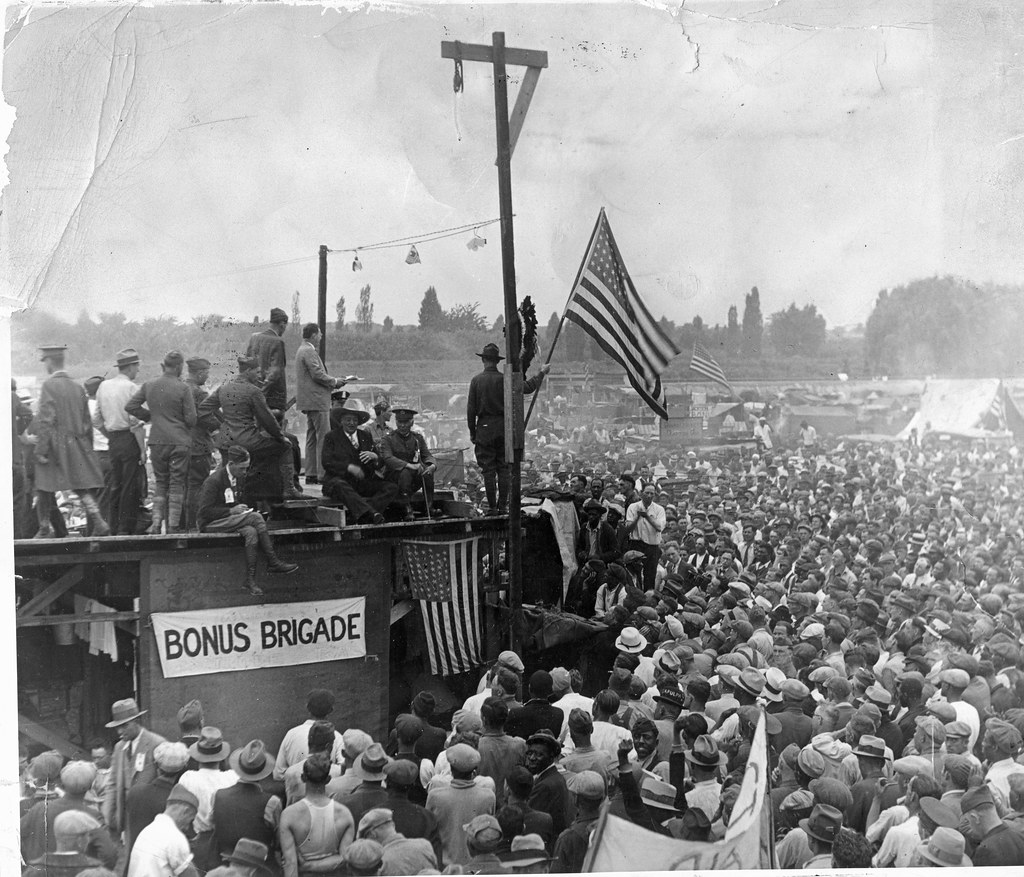
On this day in 1932, a well-disciplined mass of 43,000 protestors – American veterans of WWI and their families – descended on the US Capitol building in Washington, DC. Led by former Sgt. Walter Waters, the protestors sought long-promised war compensation benefits. Nicknamed the Bonus Army, Walter’s “troops” were largely unemployed and desperate following the start of the Great Depression. Their assembly in America’s capital was peaceful, and protected by the Constitution’s First Amendment.

The Bonus Army camped out on the Anacostia Flats in DC. Their camp was a “Hooverville” made of scrap lumber, but it was rigorously maintained by the veterans, who kept a high standard of hygiene and paraded daily. Their continued presence irritated president Herbert Hoover, however, and on July 28th the protestors were ordered to disperse. A combined force of DC police and US Army troops pushed the Bonus Army back from the Capitol with thousands of troops and a number of M1917 light tanks. As the Bonus Army re-entered their Anacostia camp, the police opened fire, killing two veterans. Expecting help from the Army, the protestors were dismayed to see the soldiers don gas masks and fix bayonets. On the orders of General Douglas Macarthur (a controversial WWII figure), the Army gassed the “Bonusers” out of their camp; an unknown number were injured, and one 12-year-old boy died as a result of exposure to the CS gas. Another veteran’s wife suffered a miscarriage. The Bonusers’ camp was bulldozed by Macarthur’s tanks and the remaining veterans were forced to flee.

In the November general elections, voters remembered Hoover’s unlawful orders and overwhelmingly supported Democrat Franklin Delano Roosevelt. Unlike his predecessor, “FDR” advocated for strong state intervention in American society to end the Depression. Soon, over 25,000 members of the Bonus Army were enlisted in the Civilian Conservation Corps, a massive Federal jobs program that paid regularly and offered meaningful employment to those hit hardest by the Depression. Instead of sending the Army to disperse later Bonus Army assemblies (which were entirely legal), FDR sent Eleanor Roosevelt to listen to what the protestors had to say. Eventually, Congress approved the payments of the Bonus Army’s compensations. Maligned as Bolsheviks and layabouts, the Bonus Army had merely asked for promised compensation for their service. Ultimately, FDR’s compassionate response to the Bonuser’s protest proved more effective – and humane – than Hoover’s violent and ham-handed approach.